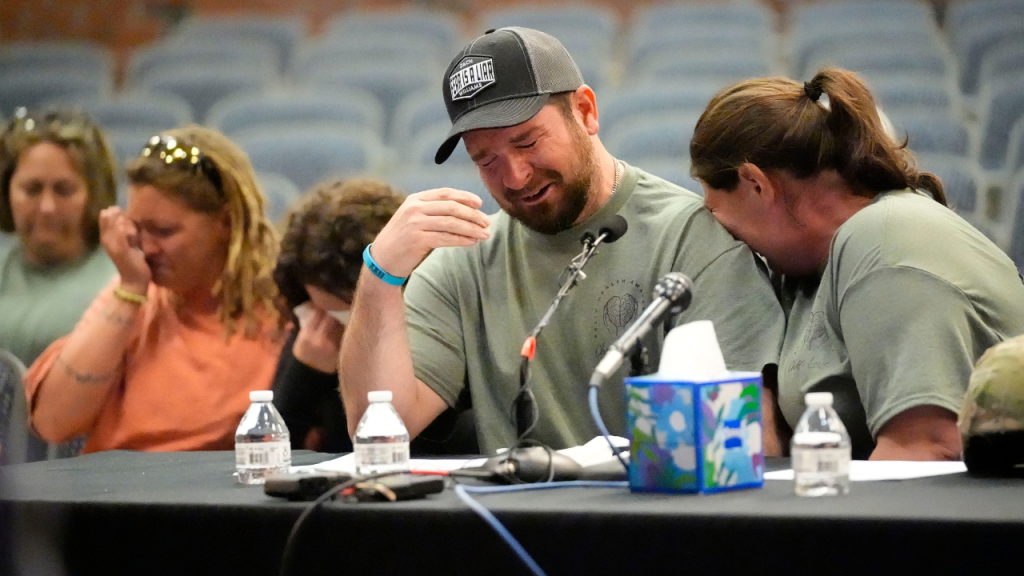The Lewiston mass shooting investigation commission heard emotional testimony from the family of Army reservist Robert Card, who was responsible for killing 18 people in Maine. James Herling, Card’s brother-in-law, detailed the family’s struggles to get him help as his mental health declined. They apologized for the deadly rampage and expressed deep remorse for the victims and their families. The family had kept a low profile until this testimony, releasing a statement in March after an analysis of Card’s brain tissue showed evidence of traumatic brain injuries. The shooting prompted Maine to pass new gun laws, including amendments to the state’s “yellow flag” law.
Card had a history of mental health troubles and committed the deadliest shooting in Maine history in October. The commission has been meeting for months, hearing from various stakeholders, including police, victims, and family members of the shooter. Card, 40, was found dead from a self-inflicted gunshot wound after an extensive search. The family had warned police about Card’s deteriorating mental health and his access to guns. Other reservists also noticed his declining mental state, with one even expressing concerns that he might commit a mass shooting. The commission criticized law enforcement for not seizing Card’s guns and putting him in protective custody based on these warnings.
The commission issued an interim report in March stating that law enforcement should have taken more decisive action to prevent the tragedy, using the existing yellow flag law. The full report is expected this summer. The legislature responded by passing new gun laws, criminalizing gun transfers to prohibited individuals and expanding funding for mental health crisis care. The family’s testimony shed light on their efforts to get Card help, ultimately culminating in a tragic and deadly outcome. Despite their efforts, they expressed deep regret for the devastation caused by Card’s actions.
The commission also planned to hear from an official from the Army Reserve Psychological Health Program, but that appearance was postponed. Commission chair Daniel Wathen expressed gratitude to Card’s family for testifying, acknowledging the difficult position they have been placed in. The family members noted that they would never forget the names of the victims and had their pictures displayed in their home. The commission aims to uncover any missteps that may have contributed to the shooting and make recommendations to prevent similar incidents in the future. The family’s testimony highlighted the challenges they faced in trying to help Card and prevent the tragedy that unfolded.
Overall, the testimony from Card’s family underscored the complexities of dealing with mental health issues and access to firearms. The commission’s investigation aims to provide a comprehensive understanding of the events leading up to the shooting and identify areas for improvement in mental health care and gun control measures. The family’s emotional testimony emphasized the impact of the shooting on the victims, survivors, and the broader community, expressing heartfelt remorse for the devastation caused. The commission’s upcoming full report will likely provide further insights and recommendations for preventing similar tragedies in the future.


